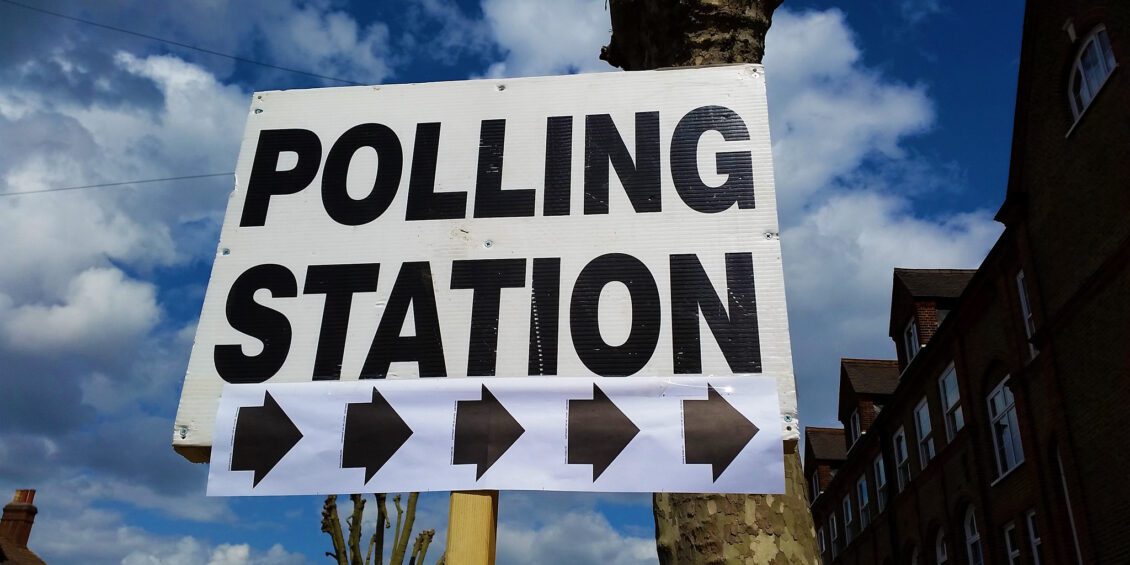

Over 200 people joined us online to hear Guardian columnist Zoe Williams in conversation Andy Burnham, Mayor of Greater Manchester to talk about where next for our democracy.
Here are my five takeaways:
- Proportional representation could help restore trust in politicians
- A focus on the Far Right could stifle our democracy
- We need to talk about power, not constitutional change
- The independence of MPs is an illusion
- House of Lords reform could mean better regional representation
Andy referred to analysis by Sir John Curtice that said trust in politicians is at its lowest and as a result people are now looking at proportional representation through different eyes. Low turnout and a higher degree of tactical voting than we’ve seen before is evidence of the level to which our trust in politics has been corroded.
Proportional representation could help restore trust in politicians
This has happened over many elections. The 2015 result contributed to Brexit because it demonstrated that frustration was building and there was a sense of voters not feeling heard.
Andy said;
‘In 2016, leading up to the Brexit vote, people were saying, ‘we’re gonna get heard this time – you’re gonna hear us’ and I just really remember that and all of that has kind of built my understanding or my feeling around the need for reform.’
The people we are expecting to take part in our democracy can see how the country isn’t fully and fairly represented in the House of Commons but the culture within Westminster allows them to defend it and the inequality of our system goes unchallenged.
A focus on the Far Right could stifle our democracy
This must be considered carefully. We can’t perpetuate a political system that doesn’t let opinions and voices be heard. That has created the situation we are in, where people feel shut out and silenced by the elite. That narrative is destructive to the health of democracy.
First Past the Post is delivering results that are increasingly bizarre. It’s creating a more fractured society. We must think about how our political system can mitigate the risks of people becoming alienated and polarised.
We must think about how our political system can mitigate the risks of people becoming alienated and polarised.
Proportional systems generally deliver a majority of people who you can work with to create a more balanced approach. The public don’t change as much as we think they do and a political system that captures that decent majority is always there. It’s nothing to be feared.
We need to talk about power, not constitutional change
We should be talking about power, not the constitution. We need to get cleverer about presenting these issues because the language of constitutional change turns people off.
People are interested in power. Whether it is House of Lords reform, devolution, or the Parliamentary whip system, people want to know who’s got power; why some people and places have it and others don’t; how power is distributed and how it’s used.
We need to talk about the rewiring of the country and how power flows around it. If you have power that’s overly concentrated in a small number of hands, in a small number of places, you’ll never get equivalent living standards across the country.
Power and inequality are inextricably linked.
If we are serious about redistributing not just funding, but power, we can create the permanent change that the country needs. Otherwise, the other lot come back in and it all goes back to the way you were before.
The English Devolution bill is a route to create a permanent redistribution of power that gives people a stronger local voice.
Andy said:
‘Sometimes Labour goes in and kind of feels it has to be the establishment – to be accepted by The Establishment and I absolutely would say don’t think like that, think always about the kind of country you want to leave behind when you’re looking back.’
The independence of MPs is an illusion
We have a long list of injustices – the Post Office, infected blood, Hillsborough, Grenfell. We have to ask ourselves why that pattern of injustice is repeated? It’s because MPs hand inordinate power to the British State – an unaccountable state that then sits on top of these injustices and doesn’t correct them, but MPs become complicit in that. MPs must develop an independence of thought and spirit
Andy said:
‘Westminster makes a fraud out of good people it makes them appear like something they’re not they’re not and you can quickly become lost in that world where you’re just voting as you’re told and going through the motions scoring points in the chamber.’
We not only have to think about the voting system but how that system makes MPs behave once they’re elected.
House of Lords reform could mean better regional representation
The regions and nations of the UK are not represented equally in our national Parliament, and this continues to feed distrust of politics.
Politics needs to create a healthier relationship with voters by building a connection with people and the place they live in – ‘place first’ rather than ‘party first’.
Devolution has enabled mayors to minimise the impact of national government changing or reversing good things that previous governments have given us. It has allowed regions to set their own course and protect what’s important to them
Reform of the House of Lords offers a way to improve representation. The public would support it. The Lords should be a Council of the nations and regions – a body that’s fairly and proportionately representing all the constituent parts of the UK.
Andy said:
‘Going into the 2030s with the Lords in the state that it’s in would be a complete embarrassment for our country.’
PR will be a journey, rather than a one-off event. We need devolution followed by a council of the nations and regions, then a return to the preferential voting system for mayors and finishing with PR for the Commons.